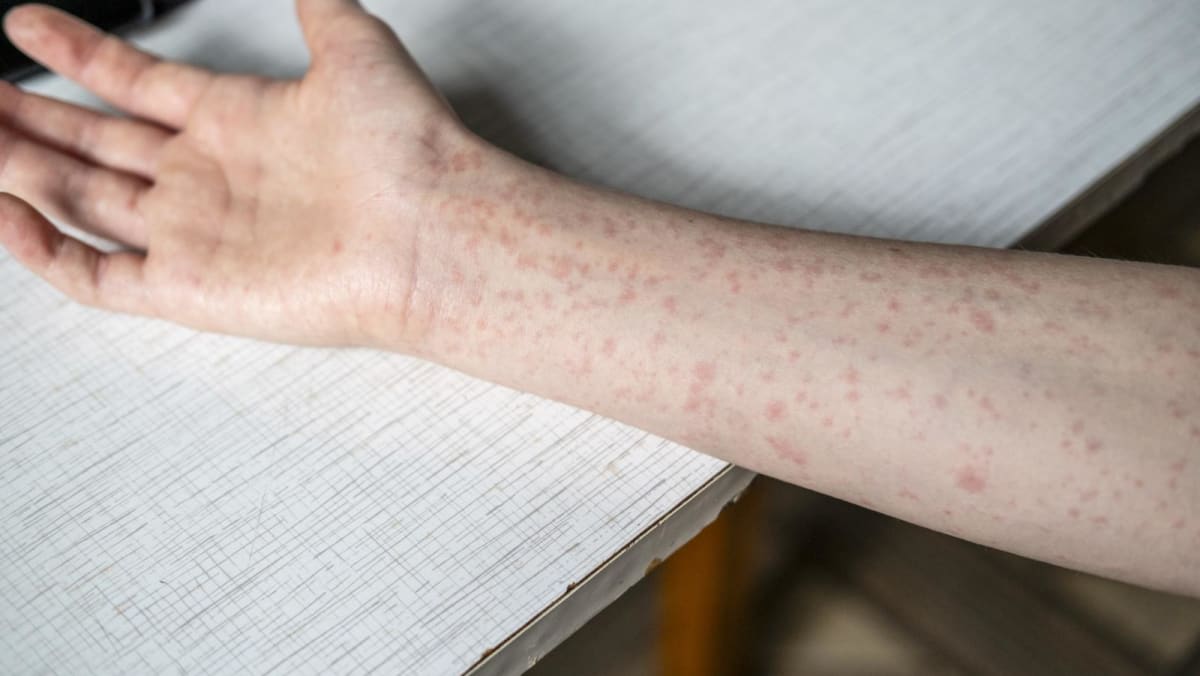Could imported cases spark a local outbreak?
Professor Ooi Eng Eong, from the emerging infectious diseases programme at Duke-NUS Medical School, said that imported measles cases could occasionally lead to locally acquired infections. However, these are typically isolated due to Singapore’s high vaccination rates.
Both Dr Cook and Prof Ooi stressed that an actual outbreak in Singapore is unlikely.
Some countries that have seen a re-emergence of measles have low vaccination rates against measles, said Prof Ooi.
Measles is highly transmissible and requires about 95 per cent population immunity to prevent outbreaks.
According to WHO immunisation data, 97 per cent of Singaporean children receive at least one dose of the measles, mumps, and rubella (MMR) vaccine annually. About 92 per cent receive both recommended doses.
Those who have received two doses are highly unlikely to develop measles, Prof Ooi said.
Dr Cook also pointed out that previous outbreaks in Singapore have remained “self-limiting” due to high community immunity.
The last major outbreak here occurred in the 1990s. It was swiftly brought under control by a 1997 catch-up immunisation drive targeting those who had missed out on the mandatory measles vaccination introduced in 1985.
Is the MMR vaccine still effective?
Singapore mandates two MMR doses for children starting at 12 months. Adults who have not been vaccinated or lack evidence of past infection or immunity are also advised to get vaccinated under the National Adult Immunisation Schedule.
For healthy individuals, the immunity from two MMR doses is long-lasting. However, those on immunosuppressive treatments, such as chemotherapy or medication for organ transplant rejection, may need a booster, Prof Ooi said.
Dr Cook described the mandatory vaccination programme as a “game changer”, offering over 95 per cent protection – higher than many other vaccines, including those for influenza, dengue and COVID-19.
Local infection rates are much higher in babies between six and 12 months old – before they are given the vaccine – compared with other age groups, he said.
Should you get another jab?
If you’ve only had one dose of the MMR vaccine, consider getting the second, especially if you’re a teenager or young adult. While measles tends to be milder in older age groups, you’re still at risk.
“The only way to prevent measles is to be vaccinated,” Prof Ooi emphasised.
If you’ve had two MMR doses, you’re in the clear, both experts agreed. If not – or if you’re not sure – consult your doctor.
